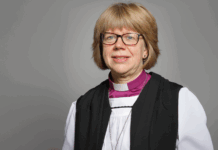“Now he is God not of the dead, but of the living; for to him all of them are alive.”
(Luke 20:38)
This past year has, undoubtedly, been one of the strangest we have ever known. The Covid-19
pandemic transformed the way we live around the world. It has been a year of much loss, grief
and suffering for many all over the globe, made worse by our inability to comfort one another
in the usual ways. We have been confronted with our mortality and our fragility as human
beings, but also with our interdependence and interconnectedness.
In His life and death on the Cross, Jesus enters into the pain, uncertainty and confusion that are
a part of human life. He lives amongst the sick, the broken and the suffering. He ministers to
the outcast and the marginalised. There is no space between us and the God who comes to live
among us. God has been close to us in our suffering this year, He has heard our cries, and He
has felt our pain. We have not suffered alone.
In Christ’s passion and death, He experiences the depths of humanity. As the Father raises
Christ in the power of the Holy Spirit a new day dawns for the world. Death is conquered and
overcome, and the one who was dead but is now alive transforms despair into hope and hatred
into love. By His resurrection, He calls us all to eternal life with Him. He reveals the truth: that
death lies to us. It does not have the final word.
Across the world we look towards the promise of the vaccine, and rebuilding society after the
tumult of the last year. We take our places as salt and light in the world, remembering that, as
Christians, we are called to keep our eyes fixed not on ‘normal’ life, but on the eternal life
Jesus promises us in His Kingdom. That is our ultimate hope and our salvation.
May we find comfort and hope in the God who died for us, and may we proclaim His name in
the confidence that He is risen indeed.
+Justin Cantuar:
The Most Reverend and Right Honourable Justin Welby
Archbishop of Canterbury



